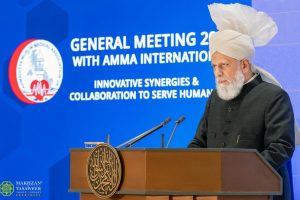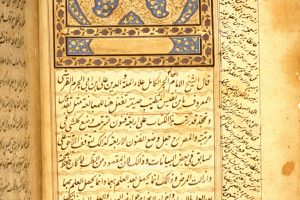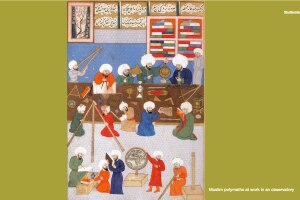
Dr Azhaar Ashraf, UK
The Discovery that Profoundly Changed our Perception of How We Sense the World Around Us
The 2021 Nobel prize in Medicine or Physiology was jointly awarded to David Julius and Ardem Patapoutian for their discoveries of receptors for temperature and touch.
The ability of humans to sense heat, cold and touch is an essential trait for survival and underlies their perception of the environment. In the 17th century, a renowned philosopher René Descartes proposed threads connected different areas of the skin with the brain. Through this mechanism, painful stimuli e.g., touching an opening flame would send a mechanical signal to the brain. Joseph Erlanger and Herbert Gasser provided evidence for the existence of different types of specialised sensory nerve fibres that responded to distinct stimuli – non-painful or painful touch. They were jointly awarded the Nobel Prize in Physiology or Medicine in 1944. However, we lacked understanding of how temperature and mechanical stimuli were decoded into electrical impulses in the nervous system.
Professor David Julius working at the University of California, San Francisco, USA, analysed how an extract of chilli peppers (capsaicin), causes the burning sensation. After thorough investigations, a single gene was identified that was found to be sensitive to chilli peppers. Additional experiments revealed that this unique gene encoded a novel protein, a heat-sensitive receptor (named TRPV1), which was activated by painful heat. This was a breakthrough discovery, as it enabled us to understand how different temperatures induce electrical signals in the nervous system. This pivotal discovery laid the groundwork for the identification of additional temperature-sensitive receptors (named TRPV8), which were independently discovered by both laureates, Professors David Julius and Ardem Patapoutian.
While scientists began to understand how the body recognizes temperature, it was not yet clear how the body sensed touch and pressure. Professor Ardem Patapoutian working at Scripps Research in La Jolla, California, USA, discovered the receptors that are directly activated by mechanical force. These receptors were fittingly called Piezo receptors after the Greek root word for ‘pressure’ (‘πιέζω’ i.e. ‘piézō’). The breakthrough led to a cascade of discoveries where these discovered proteins were found to not only be involved in sensing touch but also played a critical role in the sensing of body position and motion (termed ‘proprioception’).
Professors David Julius and Ardem Patapoutian’s discoveries of novel receptors have demonstrated how temperature and touch initiate nerve impulses and enables us to perceive and adapt to the dynamic world around us. These discoveries by the Nobel Laureates not only help researchers understand fundamental aspects of how the body functions but may also help provide new opportunities for alleviating disease. For example, therapies targeting the receptors may provide effective treatment for people affected by certain types of acute or chronic pain.
About the Nobel Prize Laureates
David Julius was born in 1955 in New York, USA. He received a PhD in 1984 from the University of California, Berkeley. He did his postdoctoral fellowship at Columbia University, New York. David Julius then continued his research efforts at the University of California, San Francisco in 1989, where he is now a Professor.
Ardem Patapoutian was born in 1967 in Beirut, Lebanon. In his early life, he moved from a war-torn Beirut to Los Angeles, USA, where he received a PhD in 1996 from California Institute of Technology, Pasadena, USA. He did his postdoctoral fellowship at the University of California, San Francisco. He has been a scientist at Scripps Research, La Jolla, California where he is now a Professor. Since 2014, he is also a Howard Hughes Medical Institute Investigator.
Key Publications
McKemy DD, Neuhausser WM, Julius D. Identification of a cold receptor reveals a general role for TRP channels in thermosensation. Nature 2002:416:52-58. PMID: 11882888.
Peier AM, Moqrich A, Hergarden AC, Reeve AJ, Andersson DA, Story GM, Earley TJ, Dragoni I, McIntyre P, Bevan S, Patapoutian A. A TRP channel that senses cold stimuli and menthol. Cell 2002:108:705-715. PMID: 11893340.
About the Author: Azhaar Ashraf received his PhD in neuroimaging from King’s College London. He is currently working as a medical writer. He also serves as the head of publication in Ahmadiyya Muslim Research Association UK (AMRA).




Add Comment